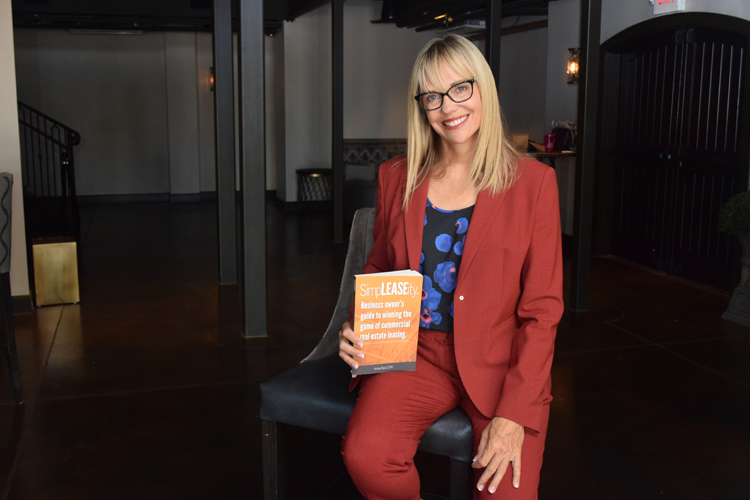While the COVID-19 pandemic impacted people of all ages and genders, changing the way we work, learn and live, reports have shown that the journey, both during and through the recovery, has been toughest on women. According to the Pew Research Center, 2.5 million more women than men nationwide lost their jobs in the first four months of the pandemic. As schools closed, many moms were forced to leave the workforce in order to care for and help educate their children.

“The pandemic has definitely set back the women’s movement,” says Andrea Davis, owner of Andrea Davis Commercial Real Estate and mother of a 14-year-old daughter. “Ninety-five percent of child-rearing duties defaults to the woman. A lot of my girlfriends with young kids really suffered. They were torn between ‘Do I work and keep bringing money into the house, or do I help my kids pass their grades?’ Many did leave the workforce.”
Women in the commercial real estate and construction fields in Arizona fared better than most as their industries were deemed essential and work continued throughout the statewide lockdown, although many employees pivoted to work-from-home situations.
“We started working from home in March. Like everyone else, we thought it would only be for a short time,” says Kristine Millar, principal for architectural firm Orcut | Winslow.
READ ALSO: Most Influential Women: Kristine Millar, Orcutt | Winslow
Because the youngest of her eight kids is in high school, Millar didn’t have to deal with the daily struggles of managing online learning, making meals or keeping young ones entertained. She did, however, juggle work and study space when five of her daughters decided to ride out the pandemic at home. “That’s something we didn’t anticipate,” she recalls. “Everybody kind of found their spot. We made sure we used our ear buds and tried to be considerate of one another. If someone had a phone call or meeting, they would say, ‘You all need to go outside or to a different space.’”
For one week, Millar’s nephew, who’s in second grade, stayed with her family. “I’m pretty loud, and he was sitting across from me while doing his online schooling. One day, he said, ‘You’re interrupting my class. You need to be quieter,” she recalls with a laugh. “So I got a taste a what other moms had to deal with. I can’t even imagine how hard it was for some of them. You want everything to be so good for your kids, and you’re trying so hard.”

Tuyet Jacobson was seven months pregnant with her second child when the pandemic hit. She also recently had been promoted to project manager of McCarthy Building Companies’ education services business unit. “Right off the bat, my team said, ‘It’s probably safer if you’re working from home. The last thing you want is to get this virus and then go through complications when you have your baby,’” she says. “It was hard for me to accept because my role is mainly out in the field.”
With a newborn and toddler at home, Jacobson and her husband — who was in the process of starting his own business — knew they’d have to make some adjustments to how they managed their time.
“We got really good at preplanning,” Jacobson recalls. “I’d schedule my meetings around nap time so I would know that there wouldn’t be anyone screaming in the background. Or, I’d lean on my husband to watch the kids when I’d have a critical meeting that that required me to be 100% dedicated.”
Jacobson credits a lot of her ability to balance work and home life to McCarthy. “The company was very proactive when it came to accommodating its employees who were dealing with challenges,” she explains. “They even offered a child-care reimbursement if your kids’ school was shut down and you needed to find additional help. The pandemic was hard on a lot of employees.”
For Corina Burton, owner of CPR Construction Cleaning, the most difficult part of managing work and her four kids, ages 4, 12, 15 and 17, was the emotional toll the isolation took on everyone. “The scariest thing was seeing my children so distressed,” she says. “My older girls have always been very studious and self-sufficient, but the lack of socialization and living in the unknown every day was very unhealthy for them. I definitely needed extra support, not just from my husband but also from an outsider with whom they could share their thoughts and feelings.
“My heart aches for women who felt as though their hands were tied, who didn’t have a support system they needed,” Burton continues. “Even though we’re in 2021 and we want to be forward-thinking and progressive, the majority of home and child care still falls on moms. Change is very slow.”

Leslie Policar, senior estimator at The Weitz Company, agrees. “As a society, a lot of the child-rearing and schooling tends to fall on the mothers. I can’t imagine what it must have been like for the women who had to do it all by themselves. I completely understand why many moms made the choice to drop out of the workforce.
“There were days when my husband would have to go into the office, and those days were insane,” she continues, noting that online learning presented a lot of challenges for her 7-year-old son. “His attention span is about 5 minutes, so that was interesting.”
If left unaddressed, the issues that many women faced during the pandemic will only exacerbate existing inequalities. By stepping off the ladder now, women may not be able to climb as high in the future.
“Nobody values the time that a woman spends caring for her family or household, even though studies have shown that the amount of multitasking, organizing and money management far exceeds the average job,” Policar says. “I do think that as more women have left the workforce, it’s going drive under-representation of women in working and management roles. And it’s going to continue to widen the pay gap, because as women start to re-enter the workforce in the next few years, they’re going to have to take lower paying jobs simply because they took a couple years off to care for their families. It’s sad, because I don’t know how to combat it. I don’t know if any of us know how to combat it.”




